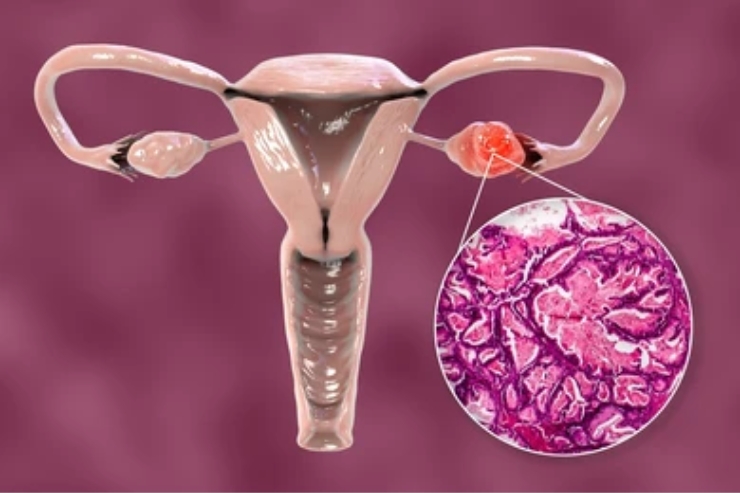
What is Ovarian Cancer?
Ovarian cancer occurs when abnormal cells in the ovaries begin to grow uncontrollably, forming a mass or tumor. The ovaries, essential reproductive glands in women, produce eggs and female hormones. In some cases, these abnormal cells may remain localized and harmless (benign). However, when they spread into nearby tissues or organs, they become cancerous (malignant). If the cancer cells travel through blood or lymph vessels to other parts of the body, it’s called metastasis. Ovarian cancer includes over 30 types, each with unique tissue characteristics and biological behavior, making diagnosis and treatment complex.
Signs to Watch For
Ovarian cancer is often called a “silent killer” because symptoms are vague and typically appear in the later stages. Early detection can be life-saving, so it’s important to stay alert to:
Abdominal bloating, distension, or discomfort
Persistent pelvic or abdominal pain
Irregular vaginal bleeding
Changes in bowel habits or appetite
Feeling full quickly while eating
Consult a specialist if these symptoms persist or worsen over time.
Treatment and Laparoscopic Surgery Options
Treatment of ovarian cancer is tailored based on the cancer’s type and stage. Management often includes surgery, chemotherapy, or a combination of both. At Eva Women’s Hospital, we offer laparoscopic (minimally invasive) surgery for precise staging and treatment, with faster recovery and less pain.
Laparoscopic surgery typically includes:
Removal of ovaries and fallopian tubes
Hysterectomy (removal of uterus)
Omentectomy (removal of the fatty layer around abdominal organs)
Biopsy of lymph nodes in the pelvis and abdomen
Our goal is to offer accurate diagnosis, complete cancer removal, and compassionate care every step of the way.

